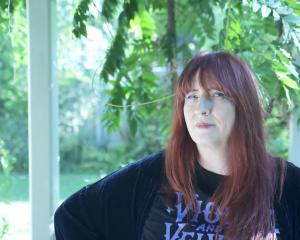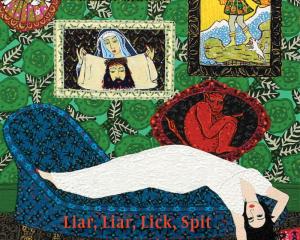
REVOLUTIONARY RIDE:
ON THE ROAD IN SEARCH
OF THE REAL IRAN
Lois Pryce
Nicholas Brealey Publishing/
Hachette NZ
By WILLIE CAMPBELL
A travel book is ... well, it is either about places, or people, or everything or sometimes despite having lots of words, nothing.
Lois Pryce, in her third book, manages a compelling everything.

In 2011, she finds a note on her motorbike, requesting her to visit Iran: ``Please do not think of what happened here and in Teheran. We are not terrorists. The Persian people are the most welcoming in the world''.
This invitation intrigued her as she realised that her knowledge of Iran came entirely from the British and US media, and it wasn't pretty.
So, despite the official warnings and the desperate negativity of friends and family, she plans a lone 5000km ride from Tabriz to Shiraz to uncover the heart of Iran. She takes inspiration from Freya Stark, the British explorer who spent much of her life in the Middle East and deliberately goes alone, as an ordinary person rather than an official journalist under the mantle of either corporate or political protection.
Her first encounter with officialdom reveals her creative and problem-solving spirit. She works through the applications with a visa agent and gets a visa with a condition: she must enter Iran on public transport, not on her own vehicle. So she puts her bike on a train in Turkey, crosses the border, wheels her bike on the rail platform, to the amusement of other passengers and then is free to travel.
This capacity to keep to the letter of the law yet maintain her freedom is typical of Pryce's travel and allows her intimate, revealing and wonderful encounters with people in a country that is blessed with a plethora of book shops, people having picnics at any opportunity, restful gardens that contrast with busy markets.
Did she find the heart of Iran?
She is inclined to think she has. A map, some photos and a chronology of significant events 1906-2016 provide valuable context. She notes that nearly all the stories she is told begin with "Before the Revolution''.
In her epilogue she recounts a conversation: "'You know Joseph de Maistre?' I shook my head. 'He was a philosopher who said that a country gets the government it deserves. He is wrong. We do not deserve ours'.''
Willie Campbell is a Dunedin educator.












